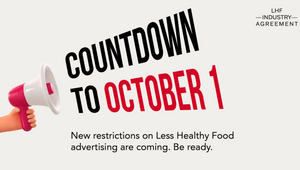
IPA Comes Out Against Further Ad Restrictions on Foods High in Fat, Sugar and Salt

The IPA has submitted its response to the UK government’s consultation regarding Introducing further advertising restrictions on TV and online for products high in fat, sugar and salt (HFSS), stating that such action would be ineffective and disproportionate.
Within the submission, the IPA states that it supports the fundamental principle that children should be protected from harmful advertising and that it supports proportionate and evidence-based methods to reduce the problem of childhood obesity. However, it asserts that the existing framework, underpinned by the CAP and BCAP Codes and regulated by the ASA, has already proven to be an effective and flexible means of reducing children’s exposure to HFSS advertising and further intervention is unnecessary.
Further highlights from the IPA submission include:
- The proposed restrictions estimate a reduction in children’s calorie intake of approximately only two calories per day, clearly demonstrating that they would be ineffective and disproportionate.
- The government’s own impact assessment shows that children’s exposure to HFSS ads on TV decreased dramatically between 2005 and 2017, down by 70%, and is expected to decrease by a further 30% over the next five years. The current rules are clearly working.
- New restrictions were introduced into the CAP Code two years ago to align the non-broadcast rules – including for online ads - with those for TV. ASA rulings show that these new rules are working too.
- The proposed restrictions depend on a time-based advertising ban across both television and online media, an arbitrary means of regulation that would serve to reduce the exposure of adults far more than children.
- The cause of children’s obesity is multi-faceted and recent examples show that a focus on calorie output – i.e. exercise - is more likely to be effective.
- The proposed restrictions would lead to significant costs to agencies, risk investment in advertising and threaten the continuing success of the UK’s ad industry.
Richard Lindsay, director of legal and public affairs at the IPA, said: “We support the government’s aim of tackling the problem of childhood obesity and wish to help the government achieve that aim. However, we do not believe that further advertising restrictions, over and above those already in place via the self-regulatory system, would be proportionate or have any effect. They will, however, damage advertising - a hugely successful UK industry that ought to be championed by government.”
The IPA also supports the Advertising Association and the ASA, CAP, and BCAP’s responses to the consultation.













